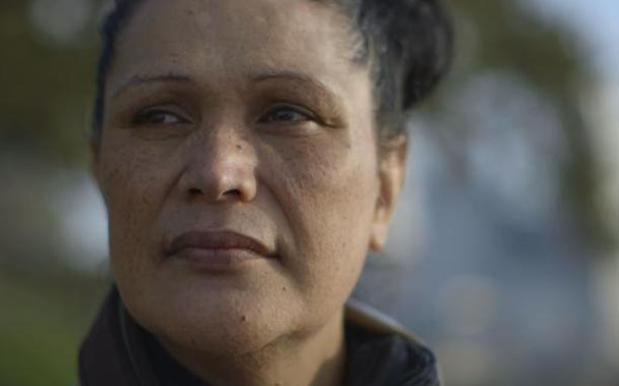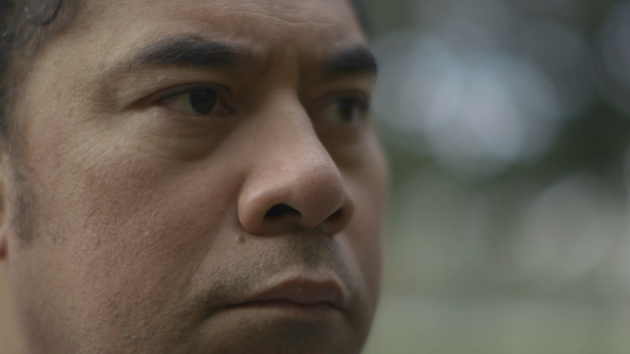
When did you first become aware of this third gender and what compelled you to investigate it? About five years ago I met a guy named Leo Tanoi. I met him at this Pacific Islander cultural festival in Western Sydney and he started telling me about this cultural phenomenon called Fa’afafine. His story is pretty incredible because he was a first grade Rugby League player for the Cronulla Sharks and he never really talked about his story because he had this profile in Rugby League. He was telling me about it and I was really moved by it because I’ve never heard anything like it before. He was describing it as this third gender that not only exists in Samoan culture but many Polynesian cultures. After that conversation I stayed in touch with him and he let me produce a really short radio doco with a little bit of video which I posted online. That only really skimmed the surface of it because his experience was of someone who didn’t feel the Fa’afafine spirit because it was forced upon him. He had a really abusive childhood. Through him and that initial piece I stayed in touch with him and started going to these underground events that brought Fa’afafine people together. I basically spent as much time with them as I could when they had events to try and win their trust. I’ve been doing that for the past few years. So through that process I’ve met other Fa’afafine who also shared their personal stories which were very different to Leo’s. That’s how it came about.
Am I right in saying that the way this process works in Samoa is the same in Australia? No. Not at all. That’s the thing. In Samoa it’s totally accepted, it’s the norm. It’s a really complex thing because it’s not the same for every person. Some Samoan elders will say to you that some boys are born with the Fa’afafine spirit and some will tell you that it’s something that can be nurtured. A mother might decide in a family of eight boys where there are no girls, they’ll choose one of the kids and raise that boy as a girl. For those who actually feel the Fa’afafine spirit, for example in my story Ymania and Phineas both felt that and both were raised as girls, whereas Leo didn’t feel it and his mother was trying to nurture that in him and he rejected it. They were all raised in Samoa. Here in Australia they’re living as Fa’afafine but Phineas for example he’s dressed as a man, he’s a lawyer, he wears a suit and tie, he goes to work. No one would ever know that he’s a Fa’afafine. But it’s something that he feels very spiritually within him and it’s a cultural thing for him which ties him to his culture and his family as he was raised as a Fa’afafine. You wouldn’t pass people on the street and think “oh he’s a Fa’afafine”. Ymania for example, is a completely different case where she’s always identified as a woman. Born a boy, raised as a girl, dressed as a girl, behaves like a woman all her life. And she’s still doing that. It’s a really individual approach to living out what Fa’afafine is. There’s no hard and fast rules about how it works.
What did you find of their experiences integrating into a Western society? Because it’s a really individual experience for each person depending on how they choose to live out their life. For Fa’afafine who dress and behave like women it’s obviously more difficult for them because it’s very physically apparent. But for people like Phineas who live as men but identify as Fa’afafine it’s also difficult. The main point where it gets tricky is relationships. You’re not really a boy, you’re not really a girl, you’re not really trans of any kind. You’re somewhere between all those identities. They see it as a third gender. In terms of relationships, in Samoa it’s completely the norm for Fa’afafine to have a relationship with a heterosexual man and it’s not seen as gay because they are in a relationship with what they deem to be a woman. It’s got nothing to do with sexuality in that sense. I think in Australia what’s most difficult is having relationships on those terms. It’s kind of weird. Because if it’s a man and a man it’s perceived as being gay. There’s no real networks here. There’s the Samoan Fa’afafine Association in Samoa. There’s up to 3000 Fa’afafine living in Samoa now and there’s up to 300 living in Australia now but they’re all scattered across the country. There’s no real network of people or organisation that really looks after and brings them together. It can be quite isolating.
Now that you’ve spent a considerable amount of time with people who identify as Fa’afafine and the communities built around them can you divine an educated guess as to why Samoan culture felt a need for Fa’afafine in the first place? That’s a really good question. I’m still asking myself that now. It’s hard to actually get a solid answer or reason for why it exists. Some will say it’s been going for a hundred years and it’s an ancestral thing, others will tell you that it’s something that can be nurtured. In terms of why they do it, I think it’s one of things that becomes part of cultural law. Comparing it to other communities around the world, it’s just part of this particular community from this particular culture and it’s okay to do and they keep on doing it. In terms of the Westernised idea of why the do it, it’s really about gender roles and labour roles. In Samoan society there are lots of expectations from a young age about how you’re going to grow up and fulfill a certain role in the family. In Samoan society it’s always been about the division of labour so men do some things and women do other things. But within Samoa your role around that was always defined by the labour you did. So Fa’afafine might have the flair and creativity of the female gender but they also have the brute strength of the male gender. In a very general way it exists to help support that structure of the family.
Did you find common dynamics in the gender roles of relationships among the people you met? Ymania was with a man in Samoa for a long time. But she played the female role in that relationship because she really identified as a female. She dressed and behaved as a woman. Whereas Phineas has wavered and changed. Now he’s in a relationship with a man in Australia. It’s hard to say. In terms of the role that they play, it’s much more centred around traditionally what the female gender has been entrusted with. Nurturing the family, taking care of children, maintaining the home. It’s an archaic idea of gender roles but that’s where it’s all derived from. They do feel they’re misunderstood. Especially in a Western context, Fa’afafine is very sexualised. They all said that they hate that because it’s a way for Western society to make sense of this very complex cultural phenomenon. For them it’s not about that at all.

Leo Tanoi, ex-Rugby League player.
The other thing that’s interesting, especially when framed by a Western viewpoint, is the idea of autonomy and choice when it comes to how you self-identity. Leo rejected that and from what I can gather from what you’ve said it was a traumatic experience for him, how did the Fa’afafine you met deal with the idea of their identity being chosen for them? It was only traumatic for him because he was split in the middle. His mother was trying to nurture the Fa’afafine in him and grooming him to be a girl. But his brothers, he was from a family of seven boys, and a lot of the boys in his community wanted him to come back to manhood and they were roughing him up and severely abusing him basically to make him tougher. He was so conflicted about it that the only way he could find a way out was to play football. For him, football was something that was so masculine and macho that he used that to prove to everybody including himself that he was a boy, he was a man, he was masculine. He went on to become a professional player. He went to extraordinary measures to prove a point.
What was the most surprising thing you learned? That’s a hard one to answer. I was constantly surprised. I guess the thing that surprised me most was Leo’s story. It’s a massive thing to undertake all of your childhood to reject this thing and undergo severe abuse. There was mass beatings where 30 to 40 guys would beat him up once a week. That’s full on. And then he got into really heavy substance abuse. He started sniffing petrol when he was the age of 10 as a way to escape. At home, he had a mother who treated him like a daughter but outside the other kids didn’t want that to happen so they were constantly roughing him up to bring him back to manhood. He was constantly conflicted. What surprised me most about his story is that he was so determined to prove to everyone including himself that he was a man and didn’t feel any inclination to Fa’afafine that he had to find something, and he found football. Not only did he find it but he took it to the highest level. He dedicated everything he had in him to training and getting to the top. Then when he got there – he was playing first grade Rugby League for the Cronulla Sharks – he lasted less than a year. He told me this amazing story where he was on the field one day and he just said “What the fuck am I doing? This is not what I wanted with my life. I just did this to prove a point. I feel like I’ve proved it and no one can tell me otherwise.” And he literally walked out of the game cold. He walked off the field and disappeared for two years. To go through this intense training to prove your masculinity, prove your point and to challenge this cultural phenomenon – and to get to the top only to throw it all away – that’s a story that will never leave me.
It was basically his whole life. He’s a really inspirational person and it’s pretty amazing what he endured. And to be able to turn around and walk away is pretty incredible. He never felt comfortable talking about it because he had a somewhat high profile at the time. It took him all these years since he’s been off the footy field to talk about it. It took him a long time make peace with it and get to the point where he actually wanted to share his story. This is the first time any of them have spoken on television. They felt like they couldn’t trust people with their story because every time someone goes into Samoa they come back out with these highly tantalising and sexualised stories about hookers and whatever and that’s not who they are at all. It’s a massive stereotype and it’s so far removed from that. They’re everyday guys. I spent a week with Phineas. He’s a lawyer, he’s a regular dude, he wears suits. He has long hair that he ties up, he sounds quite effeminate and he behaves quite effeminate but he’s living as a man. And he defends criminals. He’s a normal dude. Leo now is now a cultural producer in the arts and Ymania runs an I.T. company. They’re everyday people they just have this other element in their loves that people don’t understand.
Learn more about Fa’afafine on The Feed, airing tonight at 7:30pm on SBS2.



